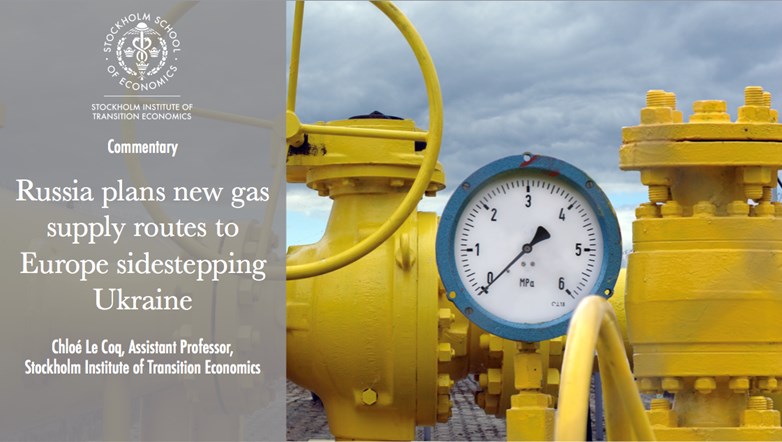Russia plans new gas supply routes to Europe sidestepping Ukraine
On December 2014, it has been announced that Gazprom will launch the construction of an offshore gas pipeline across the Black Sea and Turkey. As declared by Gazprom, a gas company controlled by the Russian state, new pipeline called the TurkStream will surface on the shore of the European part of Turkey near Kıyıköy and a border crossing between Turkey and Greece in İpsala serving as delivery point for the European customers. Since that announcement some European countries have expressed interest for Russian gas supplies via Turkey.
Dagens industri writes that Ukraine could lose its role as intermediary for Europe's gas supplies from Russia and the divided expert opinions on the potential of TurkStream. According to Gazprom delivery statistics, during the last year Gazprom Export supplied 146.6 billion cubic meters of gas to European countries. Dagens industri has calculated that about 60 billion cubic meters of gas was delivered to Europe via Ukraine while the rest amount of gas has been shipped sidestepping Ukraine, including via Nord Stream which runs to Germany via the Baltic Sea. Building a new TurkStream pipeline with total capacity of 63 billion cubic meters, including 47 billion cubic meters to be supplied to the Turkish-Greek border, this pipeline could deliver gas to European market almost entirely sidestepping Ukraine.
"Some EU-countries were less willing to block South Stream. It's not clear whether Europe will connect to TurkStream, especially if it has to finance this extra connection, but it could happen", comments Chloé Le Coq. Professor admits that tension between Europe and Russia since the conflict in the Ukraine begun hasn't had an effect on the import of Russian gas. "The gas trade will take place irrespective of what's going on in the Ukraine. This latest conflict has shown that despite strong rhetoric from both sides there was no discussion about shutting down Nord Stream. Irrespective of the political context, European and Russian gas trading has not been affected. But whether there will be a new pipeline between Europe and Russia is up to internal EU-politics", says Chloé Le Coq. More information and comments about the plans of Gazprom to build new gas supply routes to Europe is available at Dagens industri article "Putins nya rutt till Europa" here.
More information on how to assess the riskiness of pipeline gas imports and the effect of introducing new gas routes can be found in research article "Assessing gas transit risks: Russia vs. the EU", written by Chloé Le Coq and Elena Paltseva. In-depth analysis of how to assess the security of gas supply for the EU and the security of gas demand for Russia can be found in research article "The EU-Russia Gas Relationship: A Mutual Dependency", written by Chloé Le Coq and Elena Paltseva.




